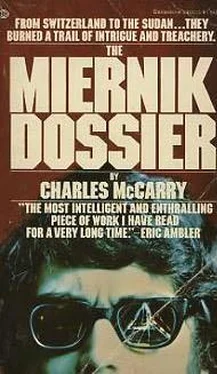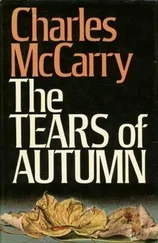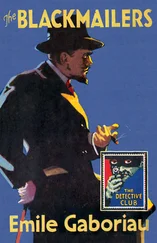“Qemal showed no fear. He said, ‘I agree. But first, listen to what I have to say, so that after you have killed me you can save the cause. You will be a great leader, Fadl. I have always thought that you, who are a pure man untouched by foreign ideas, should have been the commander of the ALF instead of Ahmed or myself. I wish to die knowing that Ahmed will be revenged and that the cause will triumph.’
“Qemal said that we must first of all get rid of the Russians. Ahmed had been saying this secretly for some time, and many of us agreed with him. He saw the truth about the Russians, and that was why he was killed. They cared nothing about Islam, nothing about Sudan, nothing about the ALF. All these three things, which meant everything in the world to me and the other comrades, were only a joke to the Russians. They are imperialists just like the rest of the Europeans. Now Qemal too realized the truth. ‘We must fight on,’ he said, ‘but it’s better to fight on alone than to take orders from the Russians.’ I put away my pistol; I hadn’t the heart to kill him. Besides, he was an educated man and we needed him.
“After that we had many planning sessions, Qemal and I. We agreed that we should have an important Sudanese as the titular head of the movement. This man would have no power, he would be a symbol for the masses. Qemal said he thought that his brother, Prince Kalash el Khatar, might join us if he understood our purpose. This had originally been Ahmed’s idea. He had sent a team of comrades to capture Prince Kalash, but all of them except one was killed in the attempt by Europeans who were guarding the prince. The Europeans had machine pistols and our men had only the old American rifles and submachine guns the Russians had given us. Those rifles are no good against modern weapons. You saw what happened this morning. Your soldiers had machine guns and mortars; we had no chance with the old guns the Russians gave us. They never gave us enough ammunition. That was one of the ways they controlled us. If there was to be an operation, a plane would come over and drop a few boxes of bullets. Otherwise we had only twenty-four rounds per rifle. The Russians condemned us to death by not giving us bullets, the same as they condemned Ahmed.
“Qemal arranged to meet Prince Kalash two days ago. Another man called Siddik and I went along with him. Qemal had promised to meet alone with his brother, so we hid nearby. Now I remembered that on this same morning a Russian called Richard, which was a code name, was supposed to join us. I realized that we were very near the place where Richard was supposed to wait for us. Ahmed, before he died, had told me about the rendezvous arrangements. Qemal never said anything about it, but I supposed he just intended to leave the Russian alone in the desert-not meet him. There were certain arrangements. I had met Russians before, with Ahmed. We used to find them with a small radio. You turn on the radio and it makes a sound like an automobile horn. The louder the sound becomes, the closer you are to the Russian. The Russian carried another small radio that sent out a signal. This was necessary because a stranger cannot find his way in the desert. We always kept the location of our camp secret even from the Russians, and we moved all the time. Then, too, the Russians always came by parachute and sometimes the wind would carry them away from the place they said they were going to land. So the radio device was very useful.
“As Siddik and I waited for Qemal it occurred to me that the Russian might be nearby. I had the radio device in my Land Rover, which used to be Ahmed’s vehicle, so I got it out and turned it on. The signal came out of it quite strongly. We walked in one direction and another until it got louder. Then we simply followed the signal until we found the Russian. He was standing in the ruins of an old house, looking at them and muttering to himself. He was rather fat, as Russians usually are. I sent Siddik around behind him, and then I stepped into the ruins. The Russian did not see me at first, he was interested in something written on one of the walls. When he did see me, he leaped in fright. Then he smiled and made salaam.
“There was a password. I gave it because I wanted to be sure he’d come along willingly, not suspecting anything. I said, ‘Heaven is far away,’ which was the password the Russians had sent. The Russian peered at me through his glasses, still smiling foolishly, and said, ‘God is great.’ That was not the prescribed countersign, but these Russians are never straightforward; they don’t always come right out with things like passwords. I said ‘Where is God?’ The Russian said, ‘Allah is everywhere and near at hand.’ That was the countersign, or near enough. I shook hands with the Russian, told him how glad we were to see him, how grateful we were to him, and so on. He kept on being suspicious. At first he was not going to come with me, but when Siddik stepped through the broken wall behind him with his rifle, the Russian stopped arguing and walked to the Land Rover with us.
“Qemal was astonished when he came back and found that we had taken the Russian. I took him aside and told him how I had found him. Qemal was extremely pleased. ‘Good,’ he said, ‘now you can have your revenge for Ahmed, and we can leave a signal the Russians cannot misunderstand to show that we are finished with them.’ Qemal said the Russians would certainly come looking for their man if he did not radio to them that all was well. He said we should kill the Russian and cut off his balls and hang him up the way we had done the others. Then we would radio the Russians and tell them to look on a certain hill for their Richard, who was unable to carry on and wished to return home.
“So that’s what we did. The Russian tried to dissuade us. At first he kept telling us in Arabic that he wasn’t a Russian. He got out his passport which showed he was something else. Qemal read the passport and said it came from a country that was a colony of Russia. He talked Russian to the man. The man answered in Russian. We took him a long way, almost to the camp, before we killed him. He argued with us right to the end. ‘You are making a mistake, a terrible mistake,’ he said. ‘I am not this Richard. I know no Richard. I am a friend of Prince Kalash el Khatar. He is nearby. He will tell you.’ Qemal laughed at him. ‘Prince Kalash is my brother,’ he said. ‘I just spoke to him. He said nothing about any Russian friend. Prince Kalash has no Russian friends.’
“The Russian, in the end, was very strange. He saw that we were going to kill him. He was a powerful man; he could have fought. But he did not. He submitted like a sheep. Siddik went to the camp and got the boards while Qemal and I talked to the Russian. When Siddik came back, we tied him on the crossed boards. Qemal took no part in any of this; Siddik and I did all the work. It was Siddik who used the knife.
“The Russian hung there upside down, talking some foreign language in a voice that got louder and louder as Siddik cut him. It sounded like prayers. Only once did he make any fuss. He fainted when Siddik cut off his fingers. I slapped his face until he woke up. Then Siddik told him what he was going to do. When the knife went between his legs, the Russian roared, a huge sound. Not a scream. He roared like a stabbed lion. Then, naturally, he went unconscious again. I wanted to shoot him but Qemal said no-let him bleed. But before we left him I cut his wrists.”
“I don’t think Qemal ever radioed the Russians where to find their man. He was going to do it this morning after we broke camp. But there was the rain in the night and then you attacked us. So it was all for nothing.”
One cannot read the mind of a dead man, so it is impossible to know for certain what Qemal hoped to accomplish by the murder of Miernik. The Pole’s true identity did not matter to Qemal; perhaps he genuinely believed that Miernik and the Russian agent “Richard” were one and the same. Leaving aside the confusion over identity, Qemal’s motive seems clear enough: Baballah and the other terrorists wanted to kill someone in revenge for Ahmed’s execution. Better, from Qemal’s point of view, that they kill Miernik than Qemal. By encouraging, even ordering, Miernik’s death, Qemal demonstrated to his underlings that he was as angry at the Russians as they, and that he was free of the Russians’ control.
Читать дальше












